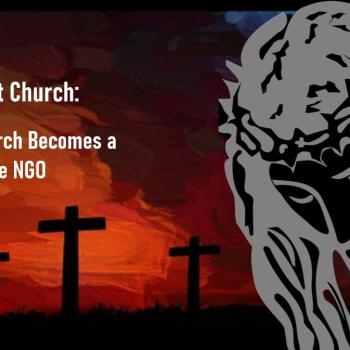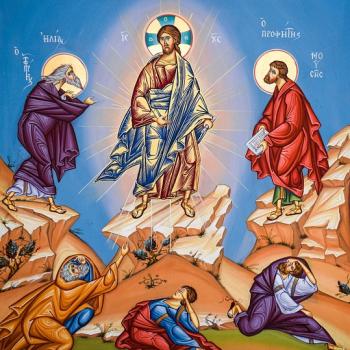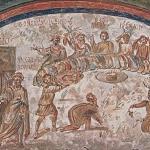
Theological virtues are those virtues that are infused into the soul by God. Among the theological virtues is faith. This fact raises a question. If faith is a product of God’s Grace, can it be rejected? Said differently, if God has disposed the soul to faith, do we really have free will when it comes to belief? This question involves not only the existence of God but also those things that the Catholic Church teaches.
To address this question, it is necessary to not only know what is meant by faith but also the source and content of that faith. This will allow us to see how free will is influenced by Grace with regard to what one believes.
As it relates to Catholicism, faith is that virtue by which one firmly believes all the truths God has revealed based on the understanding that God is not deceived, nor does He deceive others. Faith, within a religious context, is not natural or innate to human beings. The reason why faith is not natural is at least partially due to its object, God, and partially due to the nature of belief.
For one to believe something, one must possess a certain amount of knowledge and be presented with evidence. The amount of knowledge one has, as well as the evidence needed to believe, varies and depends upon the individual as well as the subject matter. Additionally, one must assent to whatever is being proposed. In this case, what one must assent to is not only belief in the existence of God but also those things which the Catholic Church deems necessary, that is to say, the content of the faith. The Church’s teaching is not of its own creation but rather inspired by the Holy Spirit.
Since faith entails belief and trust in a transcendent reality, human nature cannot be the cause of faith in the soul. For that reason, faith is considered a supernatural virtue. As matters of faith are, by nature, beyond human reason, certain truths related to the content of faith can only be disclosed to one by God. Of great import is that God has deemed it necessary to reveal the supernatural content of faith to His Church. It is the Catholic Church’s responsibility to preserve this knowledge and disseminate it as it sees fit.
As with any other subject that the intellect entertains, faith involves an element of intentionality. That is, one does not believe in isolation but believes something. As it pertains to Catholicism, this something is the deposit of faith, to wit, sacred Scripture, tradition, and the Magisterium.
Without expounding greatly, the content of the Catholic faith can be categorized into nine tenants:
1) The belief in a Triune God.
2) The belief in the Incarnation of Jesus Christ, Who is the Son of God.
3) Belief in the Person and work of the Holy Spirit.
4) The belief that Jesus was Crucified, rose from the dead, and ascended to Heaven.
5) Believe that the Catholic Church is the Mystical Body of Christ.
6) Belief in the Communion of Saints.
7) Belief that all humankind is subject to Original Sin and requires salvation.
8) Belief in the Second Coming of Christ.
9) The belief in the Real Presence.
It was said above that faith is a supernatural virtue, its existence being predicated upon God’s Grace. However, if Grace is God working in and through His creation (in this case, the human person), and if that Grace creates faith in a person, can that person be said to believe of his own free will?
In order to see the relationship between God’s Grace, free will, and faith, it must be observed that God is the creator of human nature and that human nature encompasses free will. Therefore, when it is said that Grace perfects nature, this perfecting includes free will. Now, the perfecting of human nature involves faith in God. This is so because God is the final cause or purpose for which human beings have been created.
Since the perfecting of human nature must take into account free will, Grace cannot be said to cause faith so much as it engages the will to seek faith. This, in turn, affects knowledge. As Saint Augustine put it, “faith seeks understanding.” The more one “walks by faith,” the more one obtains Grace, and the more Grace one possesses, the more one understands. Saint Paul notes the relationship between Grace and understanding (“revelation”) this way, “Surely you have heard about the administration of God’s grace that was given to me for you, that is, the mystery made known to me by revelation” (Ephesians 3:3-4).
It is Grace that illuminates the intellect to allow one to understand the sacred mysteries, and the sacred mysteries again refer one back to the content of the Catholic faith. The reason that this is so important is that there are many aspects of the Catholic faith that are not accessible to the intellect unless Grace guides it.
To understand why this is the case, it helps to distinguish between natural theology and supernatural theology. Natural theology involves understanding religious truths using reason alone. Examples of natural theology are evident in the works of Socrates, Plato, and Aristotle. The most notable use of natural theology is those used by Thomas Aquinas in arguing for the existence of God.
Whereas natural theology refers to knowledge that is obtainable by reason alone, supernatural theology is principles or truths that can only be known by Divine revelation. A prime example of this is the Holy Trinity.
There is then no conflict between Grace, free will, and faith. Instead, Grace perfects human nature and, in so doing, makes faith possible. The final act, then, is cooperation. In faith, the will desires what God desires. “Not my will, but yours be done.”
















